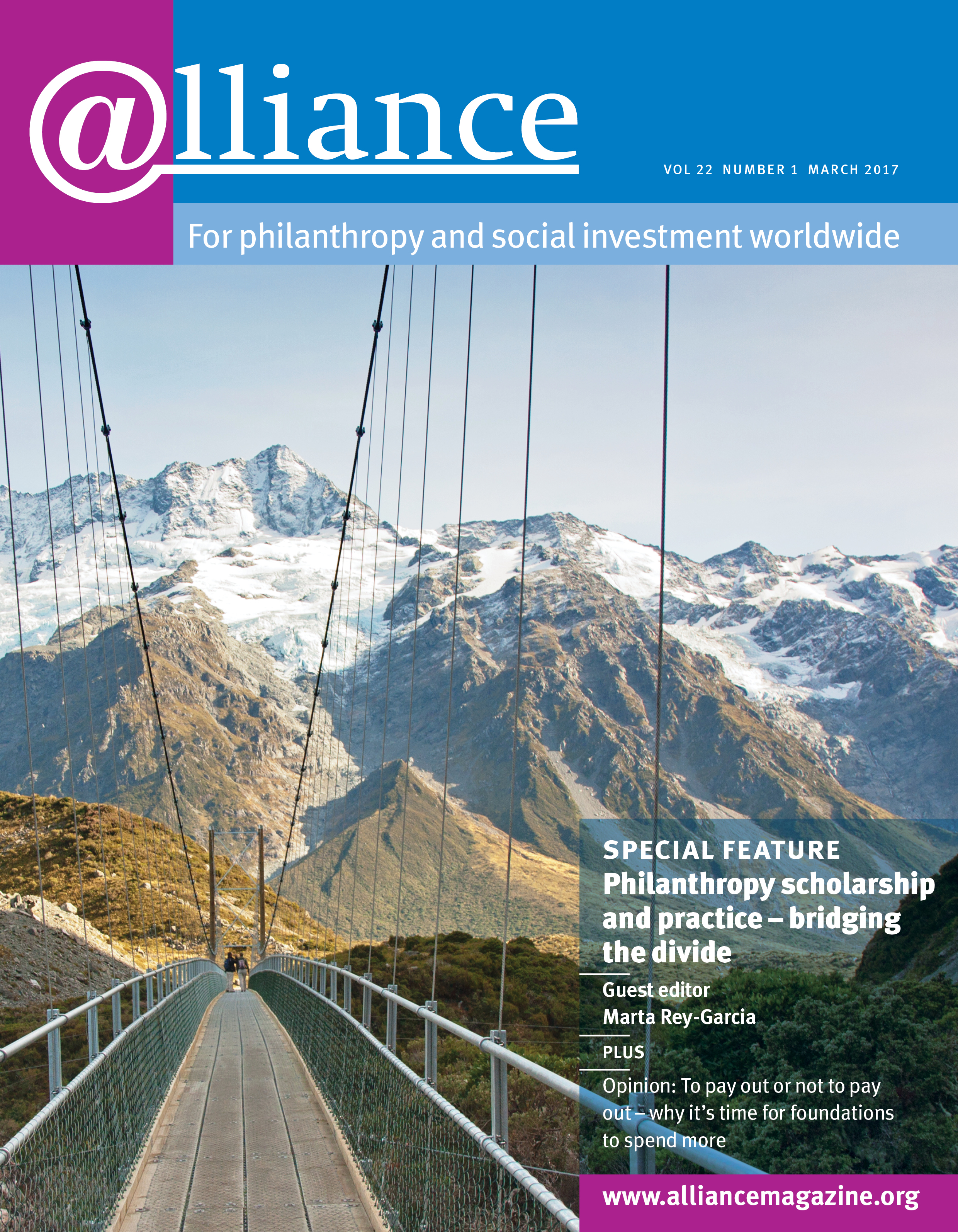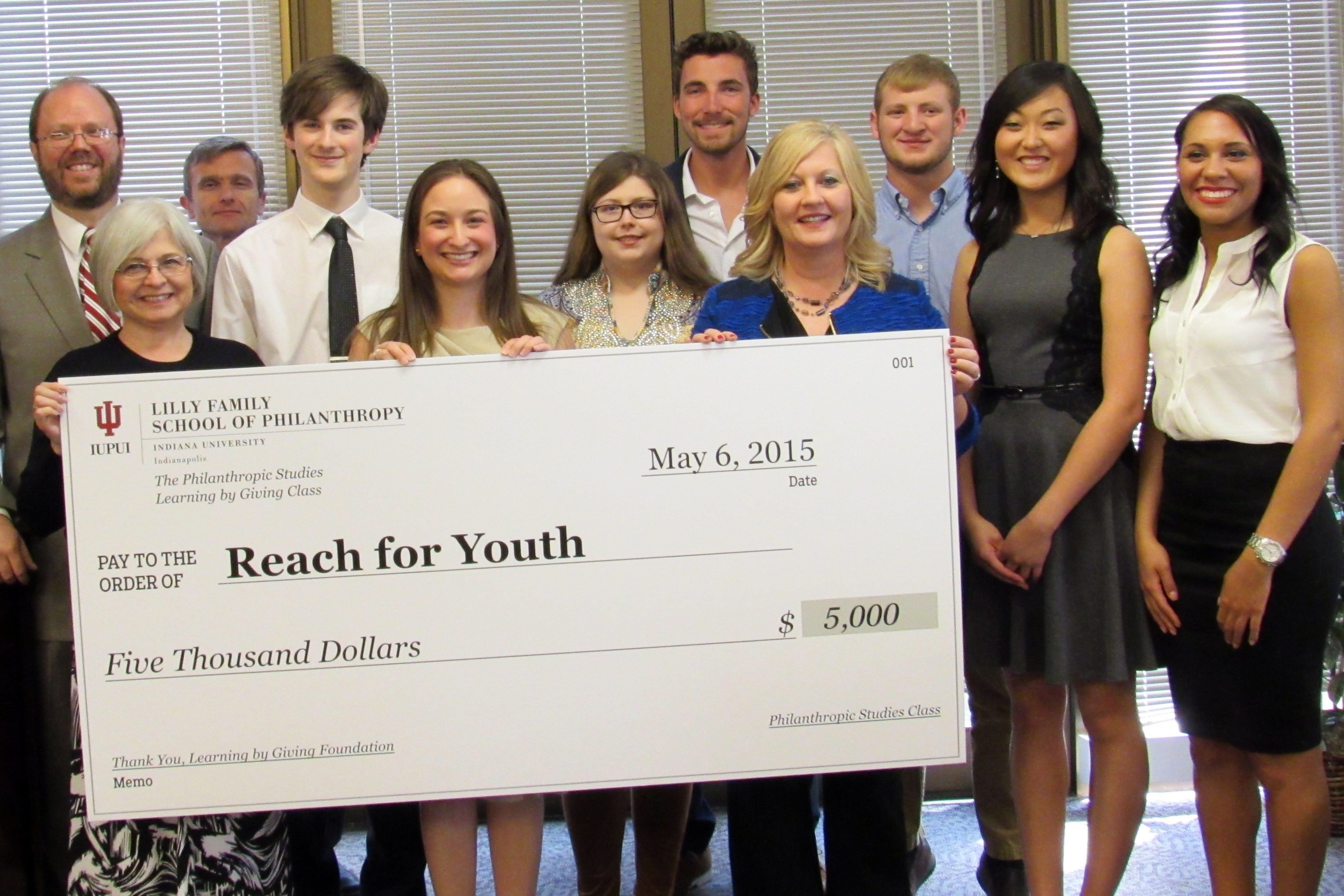There is growing interest among young people to find a profession that provides meaning as well as career opportunities. Many are turning to employment in the philanthropy and non–profit sectors where they hope to improve their communities and the world. While most non–profit employees still come to the field with varied degrees, an increasing number are studying at the growing number of programmes designed specifically to prepare them for those roles.
The development of philanthropy and non-profit studies programmes over the last two decades is astounding. In the US, we have seen a doubling in the number of institutions offering undergraduate courses as well as a steep increase in the number of graduate programmes.
In the US, we have seen a doubling in the number of institutions offering undergraduate courses as well as a steep increase in the number of graduate programmes.
Many graduates of such programmes earn positions in leading non-profit organizations, while others work in government or the private sector, imbued with a firmer understanding of the possibilities of collaboration with foundations and the non-profit sector, and, increasingly, in hybrid organizations that blend characteristics of multiple sectors.
A changing field provides opportunities for educational programmes seeking to prepare the next generation of non-profit leaders. In the US context, three trends are particularly relevant: the blurring of sectoral boundaries, including an increasing shift of the maintenance of the common good away from the public sector and private sector engagement with social enterprise; a move away from non-profit organizations as mediators of need towards individual giving through the use of technology and new forms of giving; and a focus on globalization and international aid.
Educational institutions have developed different approaches to capture students’ interest in doing good while preparing them for careers creating social change. Some have sought to provide synergies across areas of specialization. For instance, Baruch College’s Austin Marxe School of Public and International Affairs is launching a master’s degree in international affairs that overlaps with a non-profit specialization in public affairs.
The University of Maryland and Northern Kentucky University have sought to integrate philanthropy education in campus-wide initiatives both within the curriculum and as co-curricular activities focusing on experiential learning and grantmaking to engage students in the practice of philanthropy. Stanford University has focused on workshops for PhD candidates and courses for graduate and undergraduate students. Participants in these programmes often find employment in foundations or work at new social enterprise ventures with a focus on impact investing.
The Indiana University Lilly Family School of Philanthropy provides one of the most comprehensive responses to this changing environment. It offers a broad-based liberal arts education that includes understanding the breadth of the philanthropic sector and social engagement embracing international exchange and experiential learning.
Students are given a firm grounding in the historical development of philanthropy, individual motivations to give, and the impact of the sector in society, as well as applied skills such as grantmaking and fundraising.
Philanthropy and non-profit education needs to continue to enable them to employ their passions to inspire change while also preparing them not simply for a job but a career and a vocation.
The benefits of this broad-based approach are recognized by non-profit professionals with the school placing its students in both academic and non-profit leadership positions. For example, PhD student Eva E Aldrich, president and CEO of CFRE International, appreciates the school’s liberal arts approach. Her dissertation focuses on the creation of the certification for fundraising issued by the organization that she now leads.
‘Through my research on the reasons for creating the Certified Fund Raising Executive credential, I am able to talk with those considering the certification not only as a benefit for them individually but also as a benefit for the field to have such standards. We are expanding around the world because we think these standards will support the success of fundraising globally. My research allows me to talk in detail about how that happened in the United States.’
Aldrich is one of many students in the field who are looking to improve philanthropy around the world. Their goals and passions are often as diverse as the non-profit sector itself, but motivating many is a desire to do good as much as to do well. Philanthropy and non-profit education needs to continue to enable them to employ their passions to inspire change while also preparing them not simply for a job but a career and a vocation.
Gregory Witkowski is associate professor of philanthropic studies at the Indiana University Lilly Family School of Philanthropy. Email gwitkows@iupui.edu









Comments (0)